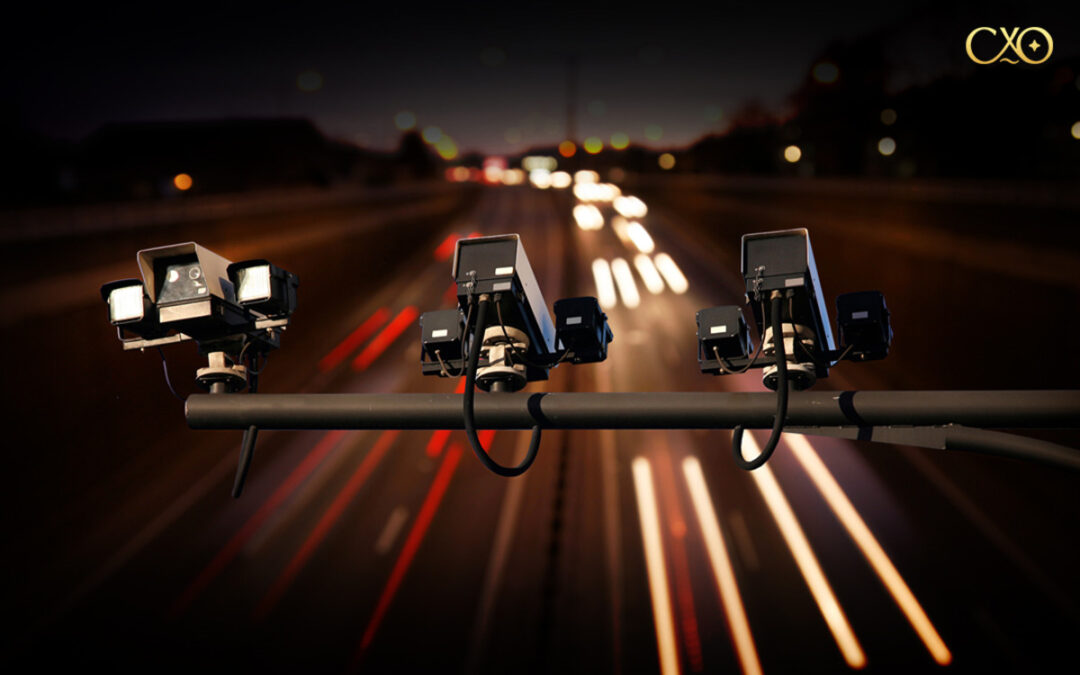The future of speed cameras might not involve physical roadside devices but rather the very cars we drive. Modern vehicles are no longer just a mode of transport; they are data-generating machines equipped with over 100 sensors, collecting vast amounts of information on location, speed, performance, and driving behaviour. These sensors produce data continuously, often several times per second, and as we move towards 2030, it’s expected that 95% of all vehicles on the road will be connected-cars, each generating an estimated 25 gigabytes of data per hour. This data-driven future will not only impact how we drive but could revolutionise how speeding is monitored.
Could Your Car Drive the Future of Speed Cameras?
In the future of speed cameras, the cameras themselves might not be necessary. Your car, constantly collecting data, may hold the key. While your car doesn’t know who’s driving, it always knows your speed and location. This raises an intriguing question: could your car automatically send data to issue speeding tickets? The possibility of such advancements blurs the line between privacy and technology, posing a critical question about how our data is used and who has access to it.
Black Box Technology: A Glimpse into the Future
The “black box” concept is already familiar in aviation, and it’s now making its way into vehicles. Event Data Recorders (EDRs) capture crucial information before, during, and after a crash, playing a key role in safety and investigations. As we look toward the future of speed cameras, this black box technology could become even more advanced, collecting detailed information on vehicle operation, environmental conditions, and potentially, speeding violations.
Pre-Crash Data: Speed, brake status, and steering angle information.
Crash Event Data: Details of airbag deployment and seatbelt status.
Post-Crash Data: Information on the vehicle’s condition and safety system activations.
The future of speed cameras might involve leveraging such technologies to ensure that speeding and other violations are captured and addressed with precision, without the need for physical cameras.
Telematics Systems: A Digital Eye on the Road
Telematics systems, which integrate GPS tracking, data logging, and wireless communication, offer a digital solution to monitoring vehicles in real time. These systems collect and transmit data about a car’s location, speed, and performance. Currently, around 40% of new cars in Europe have embedded telematics systems, and as this technology becomes more widespread, it could redefine the future of speed cameras, shifting the focus from external enforcement to internal, data-driven monitoring.
Insurance and the Data Revolution
In the evolving world of car insurance, data plays a vital role. With telematics and black box insurance policies, the safer you drive, the better your premiums. These policies monitor your driving behaviour and offer rewards or penalties based on your performance on the road. The future of speed cameras might see insurance companies using real-time data from cars to manage speeding violations directly, potentially impacting your insurance premiums.
Telematics Insurance: Reduces premiums based on safe driving habits.
Black Box Insurance: Assigns scores based on driving behaviour, with safer driving leading to lower costs.
Green Car Insurance: Rewards fuel-efficient driving with points and incentives.
Could access to your car’s real-time data replace traditional speed cameras? It’s a question the future of speed cameras may answer as we continue to rely more on data-driven technologies.
Law Enforcement and Government: Will Cars Become the New Speed Cameras?
Law enforcement agencies are already tapping into the data generated by modern cars to solve crimes, and the future of speed cameras could involve similar uses of this data. Today’s cars are equipped with over 75 computer systems that record everything from gear changes and door openings to mobile phone data synced with infotainment systems. This data, already being utilised by police, could soon play a role in monitoring speed limits and issuing violations automatically, raising concerns about privacy and data control.
Is Your Car Spying on You?
The adoption of digital twins—virtual replicas of physical systems—by car manufacturers adds another layer to this conversation. These digital twins offer insights into driver behaviour, vehicle performance, and even the vehicle’s environment, potentially providing real-time feedback or adjustments for a more efficient and safer driving experience. While it might feel like your car is “spying” on you, the future of speed cameras could involve a more integrated approach, where cars themselves help enforce speed limits.
Behavioural Insights: Digital twins can analyse your driving habits and provide feedback to improve safety and efficiency.
Adaptive Systems: Your car’s systems, such as suspension and climate control, could adjust based on your driving style and preferences, ensuring optimal performance.
While the term “spying” may seem extreme, it is clear that the future of speed cameras might involve cars collecting and using data in ways we’ve never before considered. As this technology develops, questions about who controls the data and how it’s used will continue to grow.
Conclusion: The Road Ahead
The future of speed cameras is rapidly evolving as car technology becomes more sophisticated. With connected cars, telematics systems, and black box technologies leading the way, it’s not hard to imagine a world where speed cameras as we know them are replaced by the very cars we drive. The ability to collect, analyse, and transmit data is reshaping the landscape of traffic enforcement, insurance, and law enforcement.
As AI and data insights continue to grow, our vehicles may become our biggest safety advocates and our most diligent rule enforcers, helping reduce accidents, ensure compliance, and perhaps even replace the speed cameras we see on the roads today.
About the Author
Suresh Daniel is an innovative Technology and Data strategist and an internationally recognised keynote speaker at Technology, Manufacturing, and Supply Chain events worldwide, including in Thailand, India, Dubai, the UK, Europe, and the USA.

